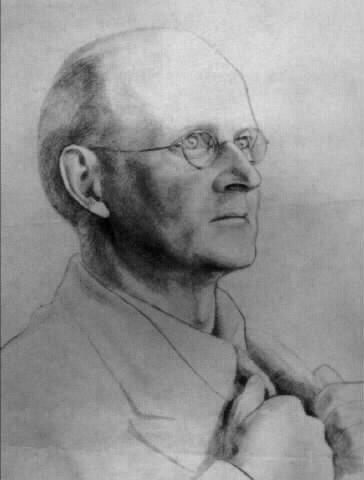

If he had ever worshipped at any shrine, it would have been one illumined with the flame of pure intellect. I think that the search for and pursuit of knowledge and scholarship was the dominant motive of Ogden’s entire being.
Dora Russell, ‘My Friend Ogden’ in C.K. Ogden: a Collective Memoir (1977)
Charles Kay Ogden, known as C.K. Ogden both professionally and privately, was a philosopher, linguist, psychologist, and editor, as well as the co-founder and President of the Cambridge Heretics. Though often overlooked today and typically portrayed as a private and somewhat eccentric character, Ogden made a significant contribution to the intellectual discourse of the 20th century. Among other things, he was the editor of several ground-breaking publications, the author of a series of papers and books, the creator and main proponent of Basic English, and an influential and lifelong humanist, who inspired many others. In the words of Dora Russell, though Ogden’s ‘own intelligence was considerable… he would use it, to a large extent, as a catalyst for the intelligence of others’, helping students, colleagues, and readers alike to clarify their own thinking and question authorities of all kinds.
It was finally decided to call ourselves Heretics, to make the rejection of authority on religious truths the touchstone of membership and to elect… the moving-spirit, C.K. Ogden, as secretary.
P. Sargant Florence, ‘Cambridge 1909-1919 and its Aftermath’ in C.K. Ogden: a Collective Memoir (1977)
Ogden was born in June 1889 in Lancashire, and excelled both academically and athletically during his time at school. However, at the age of sixteen, Ogden fell severely ill with rheumatic fever, effectively bringing his sporting aspirations to an end and turning him decisively toward academia. In 1908, Ogden won a scholarship to study classics at Magdalene College, Cambridge. While at university, Ogden was a prominent figure in many circles. Two serious contributions stand out, however. Firstly, he established the highly successful Cambridge Magazine, which he continued to edit for over a decade. Ogden even wrote his own column for the publication under the pseudonym ‘Adelyne More’ (a pun on add-a-line-more), where he discussed a series of radical, and often atheistic, views. The column became such a success that Ogden even published a notice of Adelyne’s wedding in the magazine. His close friend and associate I.A. Richards later joked: ‘I believe I dissuaded him from announcing triplets.’
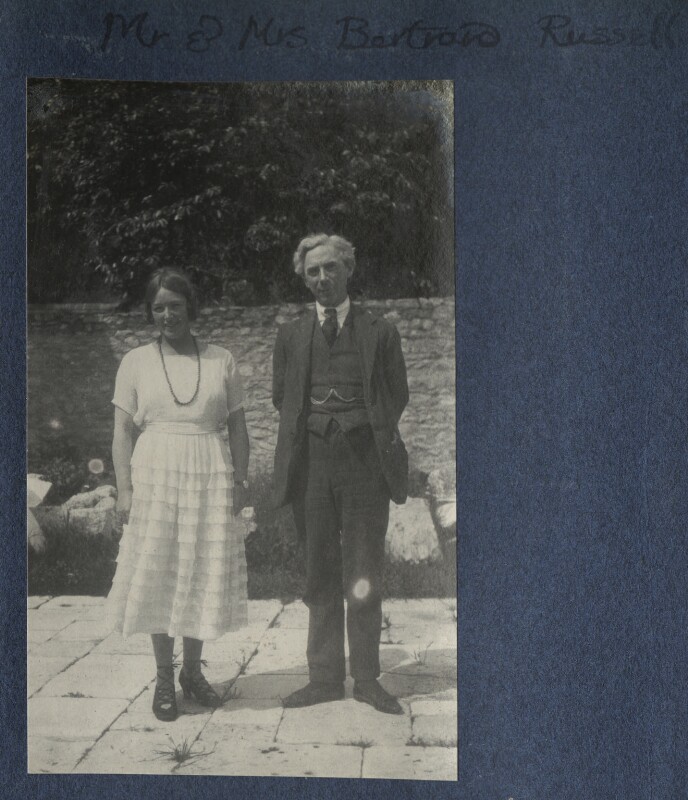
Ogden’s second great contribution during his time as an undergraduate was the co-founding of the Cambridge Heretics, a society which championed humanist values and encouraged scepticism concerning religious dogma. Ogden was President of the Heretics from 1911 to 1924 and, under his stewardship, the society welcomed a plethora of influential members including Dora and Bertrand Russell, John Maynard Keynes, and G.E. Moore. Ogden’s successor as President of the Heretics, Philip Sargant Florence – who described Ogden as ‘one of the most remarkable figures in English intellectual life in the early twentieth century’ – would go on to become Vice President of the Ethical Union (now Humanists UK).
Elsewhere in his professional career, Ogden was well-known for his authorship of the book The Meaning of Meaning alongside I.A. Richards, a fellow member of the Heretics. Against the backdrop of the ‘linguistic turn’ in 20th century philosophy, the two looked to rectify what they saw as the over-emotionalization of language, which Ogden held responsible for much manipulation and indoctrination – including that of certain religious institutions. Moreover, Ogden’s work in linguistics and the philosophy of language led him to invent perhaps one of the most fascinating, but little known, products of the period: Basic English. This reformed and vastly simplified version of the English language consisted of only 850 words and was intended to be universally intelligible. Interest in Basic English piqued in 1943 when Winston Churchill established a committee for its study, recommended its adoption by the BBC, and wrote to Franklin D. Roosevelt in order to encourage him to do the same. The US President replied that he too would look into the use of the language but remarked that Churchill’s famous ‘blood, toil, tears and sweat’ may have been somewhat less impactful if rendered, as Ogden’s Basic English would have it, ‘blood, work, eye water and face water’.
C.K. Ogden died in London on 20 March 1957. He left behind a collection of 100,000 books, and a group of friends and admirers who went on to write his collective memoir.
Ogden was, I think, a genius… And yet somehow he’s almost forgotten. And I think possibly this was because he was too universal. In an age of specialisation he took the whole world for his canvas, and painted on it all.
Mary Adams, 1962, quoted in C.K. Ogden: a Collective Memoir (1977)
Ogden’s influence is often overlooked, yet he had a considerable impact in a great many respects, and helped to transform the thinking of generations. His life was dedicated to an understanding of the uses and abuses of human linguistic and conceptual systems: he always maintained that things should not be taken at face value, be that religious authority, philosophical orthodoxy, or even language itself. His encouragement of critical thinking, and embrace of discussion and debate, crystallised in his long stewardship of the Cambridge Heretics, through which he hosted and inspired some of the century’s most influential humanists. In a chapter of C.K. Ogden: A Collective Memoir entitled ‘My Friend Ogden’, Dora Russell praised the ‘special originality and courage of C.K. Ogden’ and commended his inquisitive nature, unwavering humanist principles, and lifelong commitment to the pursuit of knowledge.
C.K. Ogden: A Collective Memoir edited by Philip Sargant Florence and J. R. L. Anderson (1977)
Ogden, Charles Kay | Oxford Dictionary of National Biography
C. K. Ogden: a bio-bibliographic study by W. Terrence Gordon (1990)
‘From Emotionalized Language to Basic English: The Career of C. K. Ogden and/as “Adelyne More’ by Christine Holden and David M. Levy in Historical Reflections, Vol. 27, No. 1. Pp. 79-105 (2001)
By Alex Mortimer
Main image: C.K. Ogden: A portrait by James Wood in C.K. Ogden. A Collective Memoir (1977)
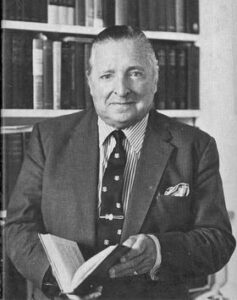
Harford Montgomery Hyde was a Belfast-born barrister, politician, author, and humanist, who championed humane legal reforms and progressive social attitudes. […]
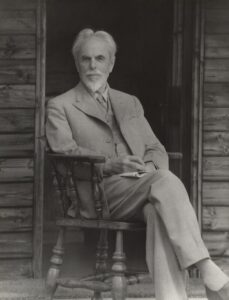
But however little it conforms or tenders allegiance, no life worth having can be isolated from the lives of others. […]
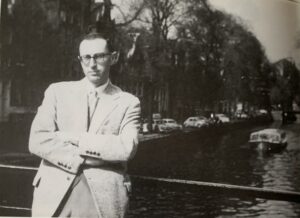
‘Being Rational About Being Gay’ was a talk given by activist Antony Grey (Anthony Edgar Gartside Wright) for the Gay […]
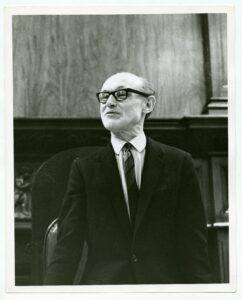
The time has arrived for us humans to stop leaning on ideas for a creator god; we should get down […]